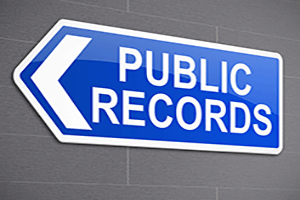Dallas County TX Public Records
Public records are a cornerstone of transparency in government agencies. They provide people with access to vital information about the workings of their local, state, and federal institutions, and what information they collect. In Dallas County, Texas, these records encompass a wide range of documents. From court records to property deeds, marriage licenses to vital records, these documents are a treasure trove of information. But what exactly constitutes a public record? How can you access these records, and which government agencies should you approach? This guide aims to answer these questions. It will delve into the specifics of Dallas County public records, providing a comprehensive resource for anyone seeking to understand or obtain these records.
What Constitutes a Public Record?
A public record is any document or piece of information that is collected, created, and maintained by a government entity that is not classified or confidential. These records are accessible to the public under the principle of open government. The Texas Public Information Act governs access to publicly available information in Dallas County. This act ensures that anyone can request and obtain records, which promote transparency and accountability within the government. Publicly available information can include a variety of documents, from government meeting minutes to court filings. They serve an important resource for understanding governmental actions and decisions.
Types of Public Records in Dallas County
Dallas County offers access to a diverse range of public records. Each type of record serves different purposes and is maintained by specific government agencies. Here is a breakdown of the various types of records you can find, and the government agencies to access them from:
1). Court Records: Are available for legal cases, including civil cases, criminal cases, family cases, traffic cases, and probate matters. These documents provide insight into judicial proceedings and decisions, as well as outcomes and sentencings.
2). Property Records: Detail land ownership, valuation, and transactions. The Dallas Central Appraisal District maintains these records, which are useful for real estate research and transactions.
3). Marriage Licenses: These are issued and recorded by the Dallas County Clerk's Office. Marriage license records confirm the legal union of two individuals and include essential details about the marriage.
4). Vital Records: These include birth and death certificates, marriage and divorce records. These are often used for personal identification and genealogical research. They are maintained by the Texas Department of State Health Services.
5). Tax Records: Offer information on property taxes, assessments, and payments. The Dallas County Tax Office provides access to these records to ensure transparency in tax collection and management.
6). Bankruptcies and Liens: These can include filings for bankruptcy for individuals and businesses. Liens include state and federal tax liens as well as bank liens on loans for homes, businesses, and vehicles.
7). Driving Records: These include driver license records, vehicle records, traffic citations, driving record points, DUIs, and driver abstracts. The Texas DPS is responsible for managing these records.
How to Run a Dallas County Public Records Search
Accessing public records in Dallas County is a straightforward process. Whether you need them for legal, personal, or research purposes, understanding how to request these records can streamline your efforts. By following these steps, you can navigate the process of accessing public records in Dallas County effectively and efficiently. Here are the various ways to do run a Dallas County Public Records Search:
1). Direct Request For Public Records: To begin, identify the type of record you need and the respective government agency responsible for maintaining it. Start by submitting an online, or written request to the agency, specifying the details necessary for locating the record. Be sure to provide sufficient information to facilitate the search.
2). Online Databases and Portals: For convenience, many public records are accessible online. Dallas County offers several databases and portals where you can perform searches from the comfort of your home. These platforms simplify accessing records such as property documents, court proceedings, and tax information. There are also third party public record resources that offer quick access to these records.
3). In-Person Requests: If digital avenues do not yield the results you need, visiting a government office in person is an option. In-person requests might be necessary for certain records that are not yet digitized or for more complex inquiries. This method ensures you receive direct assistance from knowledgeable staff.
Understanding the Texas Public Information Act
The Texas Public Information Act has a foundational role in creating government transparency. It mandates that the majority of government records are accessible to the public, as long as they are not sealed or sensitive in nature. This law gives people the power to request information held by government entities. Under this Act, anyone has the right to access information without unnecessary hurdles. The goal is to promote openness and accountability within government and their daily operations. While the act supports access to records, there are exemptions. Some information is protected due to privacy concerns or legal restrictions. Understanding these nuances helps when requesting records, ensuring a smoother process and compliance with regulations.
Fees, Timeframes, and the Right to Appeal
Obtaining public records may involve fees. These fees cover the cost of copying and processing documents. It's a good idea to be prepared for potential costs when requesting physical copies of records. Government agencies have specific timeframes to respond to records requests. Typically, they must acknowledge or address a request within ten business days. Delays are possible, especially if large volumes of information are needed. If a records request is denied, individuals have the right to appeal. The Texas Attorney General's Office oversees such appeals. Understanding this right is vital for ensuring access to the requested information.
The Role of Digitalization in Public Records Accessibility
Digitalization has transformed how we access public records. Th majority of records are now available online, and older records have been digitally transcribed for online access. This shift makes searching and obtaining documents more convenient. Online systems streamline public records search processes. Users can access information quickly from anywhere, reducing the need for physical visits. This improvement enhances efficiency and saves time for both requesters and government staff. Despite digital advances, some records may still require in-person access. However, the trend towards electronic records continues to grow. This evolution highlights the importance of technology in improving the access of information on various online platforms.
How Do I Lookup Public Records in Dallas Texas?
You can access most any publicly available record by contacting the respective government agency and making a formal request. Many agencies make this easy by hosting online search platforms that are publicly accessible. Another option is to use a third party public records website. These resources collect information from the various government agencies and offer quick online access, usually with a name search or case number search. If you do not know what government agency in Texas to reach out to for your request, try one of the third party resources to begin your research.


